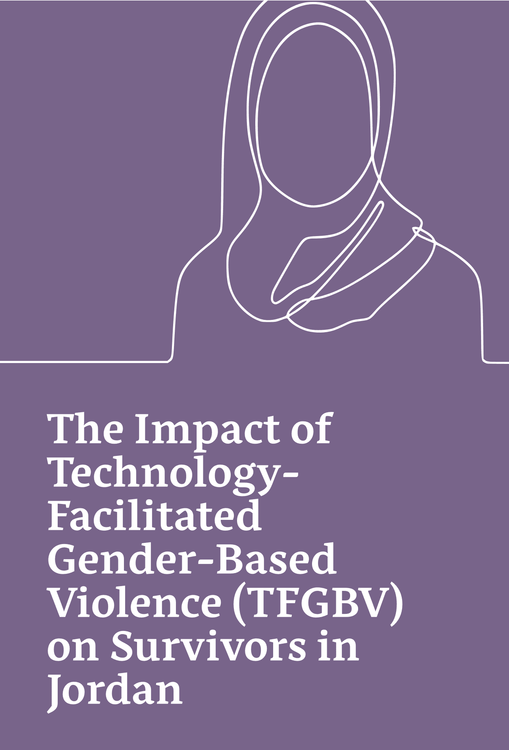The Impact of Technology- Facilitated Gender-Based Violence (TFGBV) on Survivors in Jordan
By KVINFO
This study explores the impact of Technology-Facilitated Gender-Based Violence (TFGBV) on survivors in Jordan, including feminist human rights activists and politicians, highlighting some of the challenges posed by digital forms of abuse. While technology offers many opportunities for connection and empowerment, it also creates new avenues for harassment, hate and misogyny.
Drawing on qualitative research, this study examines the lived realities of survivors, the social and psychological consequences of TFGBV, the spillover effects into physical violence, and the gaps in legal and institutional responses. It underscores the urgent need for comprehensive strategies that address prevention, protection, and support for this type of violence.
By documenting these experiences, it is our aim to alert policymakers, practitioners, and civil society actors about the serious challenge that TFGBV represents, thus hopefully contribute to more effective measures to put an end to TFGBV. We see this as crucial, since preventing TFGBV, protecting survivors and promoting digital safety is essential, not only for individual well-being but also for fostering an inclusive, equal and democratic society in Jordan.
The study was prepared between May 2024 and February 2025 by Jordan Open Source Association (JOSA) within the frames of the Human Rights and Inclusion Consortium (HRIC) under the Danish Arab Partnership Programme (DAPP), in cooperation with KVINFO - Center for Gender and Equality, funded by the Ministry of Foreign Affairs of Denmark.
Please note that the views and information presented in this publication do not necessarily align with the official stance of KVINFO or any other partners. The responsibility for the contents and views articulated herein rests solely with the author.
© 2025 KVINFO
